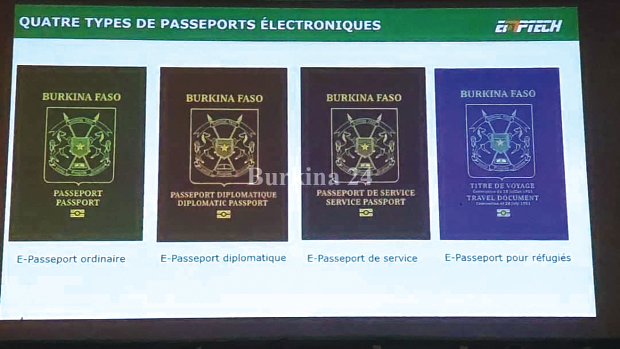Burkina Faso’s junta administration has unveiled a new generation biometric passport that no longer carries the insignia of the Economic Community of
Burkina Faso’s junta administration has unveiled a new generation biometric passport that no longer carries the insignia of the Economic Community of West African States (ECOWAS), officials announced on Wednesday.
The new passport, equipped with an electronic chip, allows for advanced data collection and storage, with enhanced security features. “This new document enables online pre-registration, flexible registration whether online or offline, and instant data transmission to embassies,” explained Security Minister Mahamadou Sana.
The minister confirmed that existing passports will remain valid until their expiration, while applicants for the new biometric version will pay a fee of 50,000 West African CFA francs ($84.46). However, additional services linked to the new passport may incur extra charges, he noted.
The passport, made from polycarbonate, was developed by the Chinese company Emptech, according to Parfait Loure, head of the National Identification Office (ONI). Loure highlighted that Burkina Faso is the first West African nation and the 10th in Africa to adopt this state-of-the-art identification technology, in line with international civil aviation standards. The move comes after a process that began in 2022.
The new passport follows Burkina Faso’s withdrawal from ECOWAS in 2023, alongside Mali and Niger, after the regional bloc threatened military intervention in response to a coup in Niger. The three nations have since formed the Alliance of Sahel States (AES) and established a joint military force to address security challenges posed by terrorist groups in the region.
